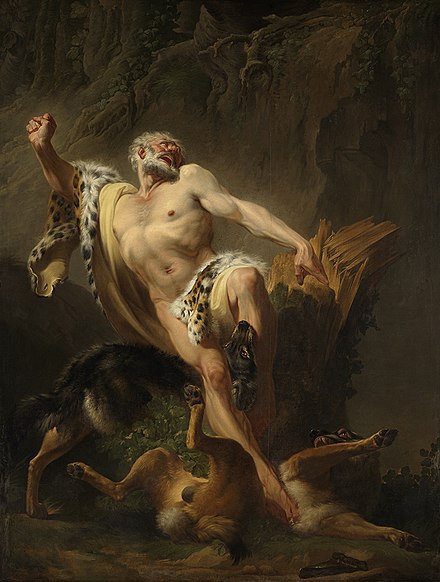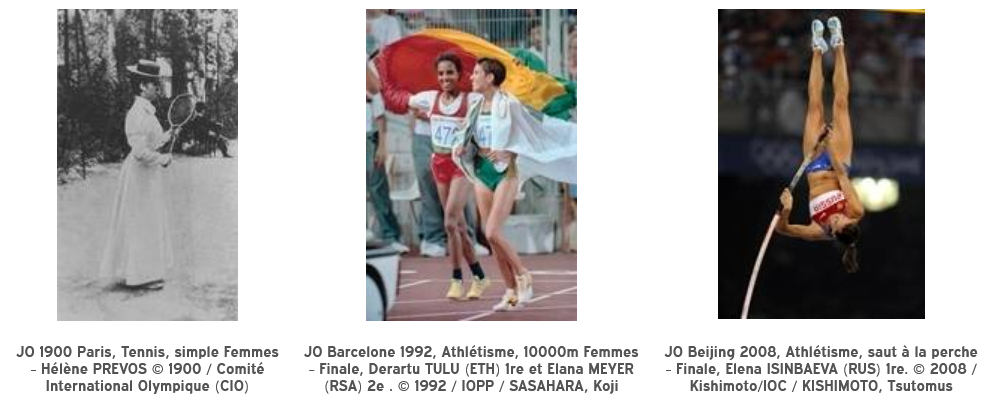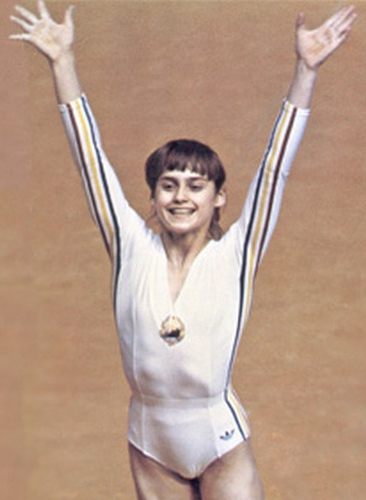Everyone knows about the Olympic Games, but few know its history. The Olympic Games we know today have a long history behind them dating back to ancient times. Athletes participate, their exploits are followed by thousands of people. The Olympic Games are different from other sporting events because they are organized every four years, it is a great sporting celebration celebrated in the 4 corners of the world. The Olympics are an exception thanks to the number of sports on the program, the number of athletes present, and the number of individuals from different nations gathered in the same venue for the same event. In less than three months, the Tokyo Olympic Games will begin, it's the right time to learn more about this mythical competition.
What are the Olympic Games?
The history of the Olympic Games dates back to ancient times. These Games have their roots in Greece, specifically in the Peloponnese, about 3,000 years ago. But what exactly are the Olympic Games? The Olympic Games are sports competitions that were held every four years. We do not know the exact date of the beginning of these, but we place the date around 776 BC. This date is often cited in written sources. The exact reasons for the birth of the Games remain unknown as history mingles with mythology. The four-year period between the editions of these Ancient Games was called the "Olympiad", and served as a dating system. Time at the time was not counted in years, but in Olympiads. Start Crack
Why were the Olympic Games created?
The reasons for the creation of the Olympic Games are unclear. Mythology mixes with real events, there are many versions trying to explain the origins of the Olympic Games. According to the oldest myth, the Games are the invention of Heracles, demigod and hero, son of Zeus and Alcmene. He is famous for his strength, courage and many legendary exploits. According to other myths, the Olympic Games were instituted by Zeus himself, in memory of his fight against Kronos. The Games were celebrated in honour of Zeus. They were intended to show the physical qualities and the evolution of the performances achieved by the young men, as well as to maintain the good relations between the Greek cities. According to specialists of the period, the Olympic Games of antiquity have a certain purity, and attach great importance to religion.
Who can participate in the Olympic Games?
The main criteria for participating in the Ancient Olympic Games are threefold. You had to be a man, be of Greek origin, and be free. Women, with the exception of horse owners, slaves, and foreigners were excluded from the competition. After the conquest of Greece by Rome in 146 BC, the Romans were able to participate in the Games. Download Latest Crack There is a lot of controversy around the presence of women at the Olympic Games. Many historians argue that no woman apart from the goddess of fertility, Demeter, was allowed to be present. Others claim that married women were not allowed to attend the games, while virgin women could be spectators. During the ancient Olympic Games, each of the cities of the Empire selected the best athletes. Those who were held back, trained hard for several months. The Games had their champions, who marked the spirits of the time. Their performances allowed these athletes to set their names in stone.
The mythical athletes of the Greek era
 Milo of Crotone is one of the greatest athletes of antiquity. In addition to being known for his physical abilities, he was a pupil of the philosopher and mathematician Pythagoras. He won the Olympic wrestling competition 6 times.
Milo of Crotone is one of the greatest athletes of antiquity. In addition to being known for his physical abilities, he was a pupil of the philosopher and mathematician Pythagoras. He won the Olympic wrestling competition 6 times.  Leonidas of Rhodes, still extremely well known today, won the Olympic Games four times in running. He was considered by his countrymen as the equal of the Gods.
Leonidas of Rhodes, still extremely well known today, won the Olympic Games four times in running. He was considered by his countrymen as the equal of the Gods.  Kyniska of Sparta, daughter of the king of Sparta, Archidamos, was the first woman to win competitions at the Olympic Games. His chariot won the quadriga competition twice, in 396 BC and 392 BC. Normally, women were not admitted to the Olympic Games. However, the organizers had to break with this tradition. In chariot races, the winner's crown went to the owner of the chariot.
Kyniska of Sparta, daughter of the king of Sparta, Archidamos, was the first woman to win competitions at the Olympic Games. His chariot won the quadriga competition twice, in 396 BC and 392 BC. Normally, women were not admitted to the Olympic Games. However, the organizers had to break with this tradition. In chariot races, the winner's crown went to the owner of the chariot.
The end of the Ancient Olympic Games
After more than 1,000 years of existence, and a dazzling success, the Games lost their splendour. First, by the conquest of Greece by the Romans. Until the point of no return in 393 AD, when Emperor Theodosius I, converted to Catholicism, decided to abolish all pagan cults and centers, which led to the disappearance of the Olympic Games. After this ban, the city of Olympia experienced acts of vandalism. The site disappeared as history progressed, due to earthquakes and floods. 
The rebirth of the Olympic Games thanks to Pierre de Coubertin
Pierre de Coubertin, baron measuring only 1 m 62 is one of the visionaries of the twentieth century. Born into a family of French aristocrats, he quickly embraced the values of the Third Republic, which we still know today: "Liberty, Equality, Fraternity". Pierre de Coubertin was destined for a military or law career, but very quickly, he discovered his passion for rugby in England. At that time, he was embarking on a quest to give children the right to play sports at school. At only 25 years old, he is one of the leaders of education reform in France. In 1889, during the Universal Exhibition in Paris, de Coubertin organized the First Congress of Physical Exercises and School Competitions. He then began to weave an international network of teachings, but also of politicians, members of the aristocracy and personalities from the economy and culture. All these beautiful people were gathered to help him realize a crazy project: to recreate the Olympic Games. On June 23, 1894, it was in the mythical amphitheater of the Sorbonne, that Pierre de Coubertin was acclaimed for his proposal to revive the Olympic Games. In addition, he designated Athens and Paris as host cities for the first two editions organized in 1896 and 1900. Then, in 1896, the celebration of the 1st Games of the modern era took place in Athens. What a coincidence, right? 
The first modern Olympic Games
We find ourselves in 1896, in Athens, mythical city of Ancient Greece. The number of athletes present is quite low. Still, the craze is palpable. This is the first time that a sports meeting brings together so many participants.
The 1896 Olympic Games were a great success, especially with the Greek public. In addition, the victory of a Greek, Spyrídon Loúis, in the marathon event, is one of the highlights of the competition. But another competitor will stand out during these nine days, it is the German, Carl Schuhmann, wrestler and gymnast, crowned Olympic champion four times.
Loans from the Ancient Olympic Games
Pierre de Coubertin was greatly inspired by the Olympic Games of the ancient period for the modern Games. During the first edition of the Modern Olympic Games, Pierre de Coubertin wanted to recall many times the origins of these. First, the Games were held in Athens, Greece, home of the ancient Olympic Games. In addition, the majority of competitions take place in the old stadium, the Panathenaic Stadium, which has been restored exclusively for the occasion. The sports of the first modern edition are the same as in ancient times. Did you know that the organizers of the Modern Olympics invented a race that is inspired by a historical event dating back to ancient times: the marathon ?
Innovations at the Games
From the beginning, Pierre de Coubertin still wanted to stand out. For starters, it offers secular Games. In ancient times, the Games were in honor of the Gods. In addition, the Games are in motion. Each new edition takes place in a different country and city. Modern Games are also longer, lasting a maximum of 16 days. Whereas in the past it lasted 5 days. The 1896 edition allowed athletes from all over the world to participate in the Games. The ancient Games were exclusively reserved for Greek citizens, men and free. The first edition brought together 245 participants from 14 different countries. Starting with the 1912 Games in Stockholm, Sweden, delegations were created. There are 5 of them, representing the 5 continents. Even today, the Olympic Games bring together athletes from all over the world.
Forward women!
 As early as 1900, women could compete in the Olympic Games. Before, the Ancient and Modern Games had the particularity of prohibiting women from participating. They faced prejudices such as losing their femininity, or their fertility if they participated in the Games. It was at the 1900 Olympic Games in Paris that women were able to take part in the festivities, but only in the tennis and golf categories. Throughout the twentieth century, more and more sports opened up to them such as swimming in 1912, volleyball in 1964, or football in 1996. However, it was not until the London Games in 2012 that women could participate in the boxing event. A little late, right? In France, we were able to count on great athletes, who brought us several medals, but who also broke many records. First, Micheline Ostermeyer in 1948 in London in the athletics category. That year, she was crowned double world champion in the shot put and discus. She also won bronze in the high jump. Laura Flessel, in1996, at the Atlanta Olympics, she won gold in individual and team. The following three years, Laura Flessel chained the world podiums, in turn in 3rd place (team), then each time first (team or individual). Finally, the mythical Laura Manoudou, who returns from the Athens Olympic Games with 3 medals (gold in the 400m freestyle, silver in the 800m freestyle and bronze in the 100m backstroke). From 1984, the Olympic Games became professional. Before, the Games were exclusively reserved for amateur athletes, which was a wish of Pierre de Coubertin. In 1984, the International Olympic Committee abolished this rule, and professional athletes were allowed to participate.
As early as 1900, women could compete in the Olympic Games. Before, the Ancient and Modern Games had the particularity of prohibiting women from participating. They faced prejudices such as losing their femininity, or their fertility if they participated in the Games. It was at the 1900 Olympic Games in Paris that women were able to take part in the festivities, but only in the tennis and golf categories. Throughout the twentieth century, more and more sports opened up to them such as swimming in 1912, volleyball in 1964, or football in 1996. However, it was not until the London Games in 2012 that women could participate in the boxing event. A little late, right? In France, we were able to count on great athletes, who brought us several medals, but who also broke many records. First, Micheline Ostermeyer in 1948 in London in the athletics category. That year, she was crowned double world champion in the shot put and discus. She also won bronze in the high jump. Laura Flessel, in1996, at the Atlanta Olympics, she won gold in individual and team. The following three years, Laura Flessel chained the world podiums, in turn in 3rd place (team), then each time first (team or individual). Finally, the mythical Laura Manoudou, who returns from the Athens Olympic Games with 3 medals (gold in the 400m freestyle, silver in the 800m freestyle and bronze in the 100m backstroke). From 1984, the Olympic Games became professional. Before, the Games were exclusively reserved for amateur athletes, which was a wish of Pierre de Coubertin. In 1984, the International Olympic Committee abolished this rule, and professional athletes were allowed to participate.
Who organises the Olympic Games?
From its creation in 1894 until April 10, 1915, the headquarters of the International Olympic Committee was in Paris. However, with the beginning of the First World War, Pierre de Coubertin preferred to relocate the headquarters in Switzerland to Lausanne, to protect it from hostilities. Today, the Olympic Games are organised by the International Olympic Committee , the National Olympic Committee of the host city country and the host city itself.
The highlights of the modern Olympic Games
In addition to being a unifying and original competition, the Olympic Games are also a way to see exploits and anthology moments of surpassing oneself by sportsmen and sportswomen.  Nadia Comaneci was 14 years old, when at the Montreal Olympics in 1976, she scored ten out of ten for her performance on the uneven bars. She became the youngest Olympic medalist in history.
Nadia Comaneci was 14 years old, when at the Montreal Olympics in 1976, she scored ten out of ten for her performance on the uneven bars. She became the youngest Olympic medalist in history.  The 1936 Olympic Games were held in Berlin. Organized by Nazi Germany, Hitler and Goebbels, this event has gone down in history. The German sportsman, Luz Long, protected by the two politicians, is at the center of all the discussions. However, it is Jesse Owens, a black American, who breaks all records. He won four gold medals. The two athletes, just above, will challenge the German regime, taking this photograph to show their respect and mutual understanding.
The 1936 Olympic Games were held in Berlin. Organized by Nazi Germany, Hitler and Goebbels, this event has gone down in history. The German sportsman, Luz Long, protected by the two politicians, is at the center of all the discussions. However, it is Jesse Owens, a black American, who breaks all records. He won four gold medals. The two athletes, just above, will challenge the German regime, taking this photograph to show their respect and mutual understanding.  Remember the 2008 Beijing Olympics. During this edition, one name is on everyone's lips, Usain Bolt. This Jamaican athlete will break all records at the Games. He became the first runner in history to set three world records in the same games, for the 100 metres, 200 metres, and 4 x 100 metres. His gesture made after his victory, a movement mimicking an arrow throw, will remain engraved. As we have seen, the Olympic Games are not new. Even after these centuries of existence, they are still a moment awaited all over the world. The Olympic Games are a moment of conviviality, sharing and respect. The period we are living in is most difficult, and this can be seen in the preparation of the next Olympic Games, organized in Beijing. The Japanese government has decided to ban the entry of foreign spectators, while the DNA of the competition is to federate people from all over the world. How will the Olympic Games manage to keep the spirit of competition, and sharing without its spectators?
Remember the 2008 Beijing Olympics. During this edition, one name is on everyone's lips, Usain Bolt. This Jamaican athlete will break all records at the Games. He became the first runner in history to set three world records in the same games, for the 100 metres, 200 metres, and 4 x 100 metres. His gesture made after his victory, a movement mimicking an arrow throw, will remain engraved. As we have seen, the Olympic Games are not new. Even after these centuries of existence, they are still a moment awaited all over the world. The Olympic Games are a moment of conviviality, sharing and respect. The period we are living in is most difficult, and this can be seen in the preparation of the next Olympic Games, organized in Beijing. The Japanese government has decided to ban the entry of foreign spectators, while the DNA of the competition is to federate people from all over the world. How will the Olympic Games manage to keep the spirit of competition, and sharing without its spectators?







































